Insulating the walls of a house or apartment allows you to reduce heat loss and save money on heating. Insulation materials differ in origin, structure and shape. They vary significantly in price and functionality.
The editors of the site "bestx.htgetrid.com/en/" will help you navigate the insulation, choose the right material for an apartment or house, wood, panel or brick walls.
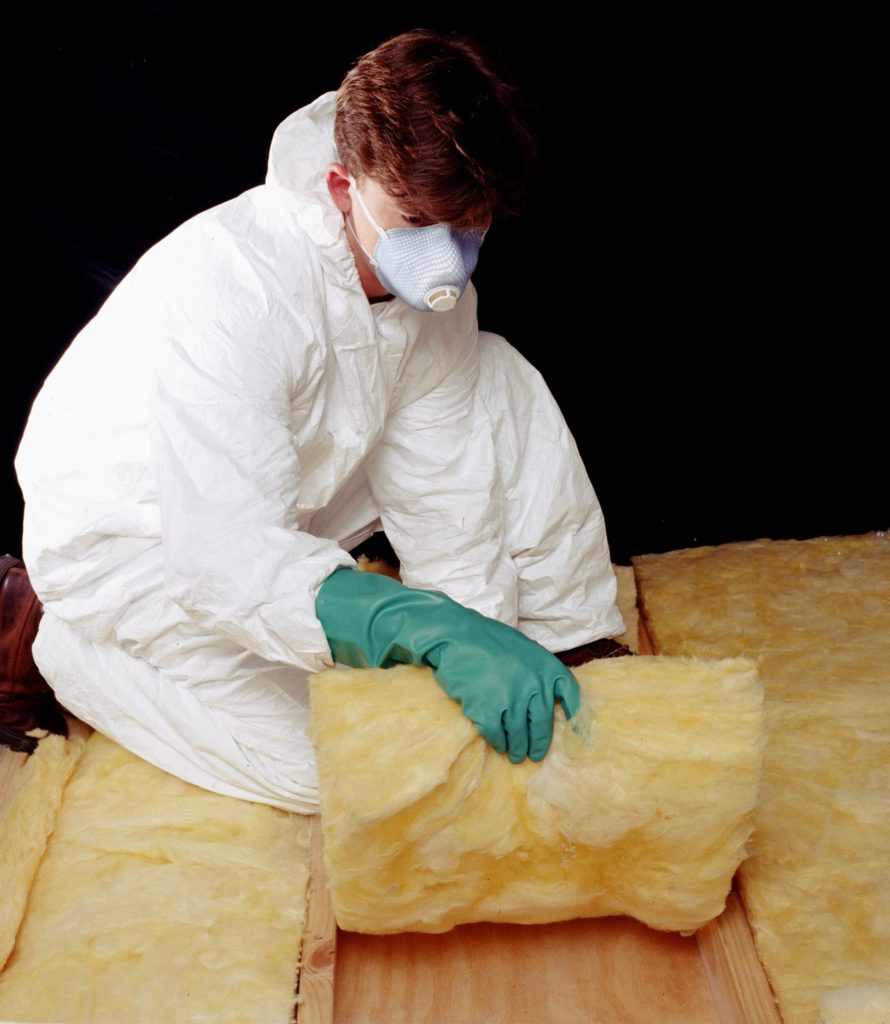
Insulation or thermal insulation (thermal insulation) is a material that reduces heat loss from the inside of a building to the outside.
Content
How to insulate the walls of a house or apartment?
There are several ways to insulate the walls of a house or apartment:
- Make a hinged ventilated facade. In this case, you need to use non-combustible materials.
- Mount the insulating material and then apply a thin layer of plaster. An example is a wet facade.
It is worth clarifying that according to the laws of physics, it is safer and more effective to insulate a house either in a complex way - both inside and outside, or only outside. Then the wall will not get wet, moldy. If it is impossible to sheathe the house from the outside, for example, the building is an architectural monument, then it is permissible to insulate it only inside. But then it is necessary to make calculations so that the dew point does not end up in the supporting structure of the wall.
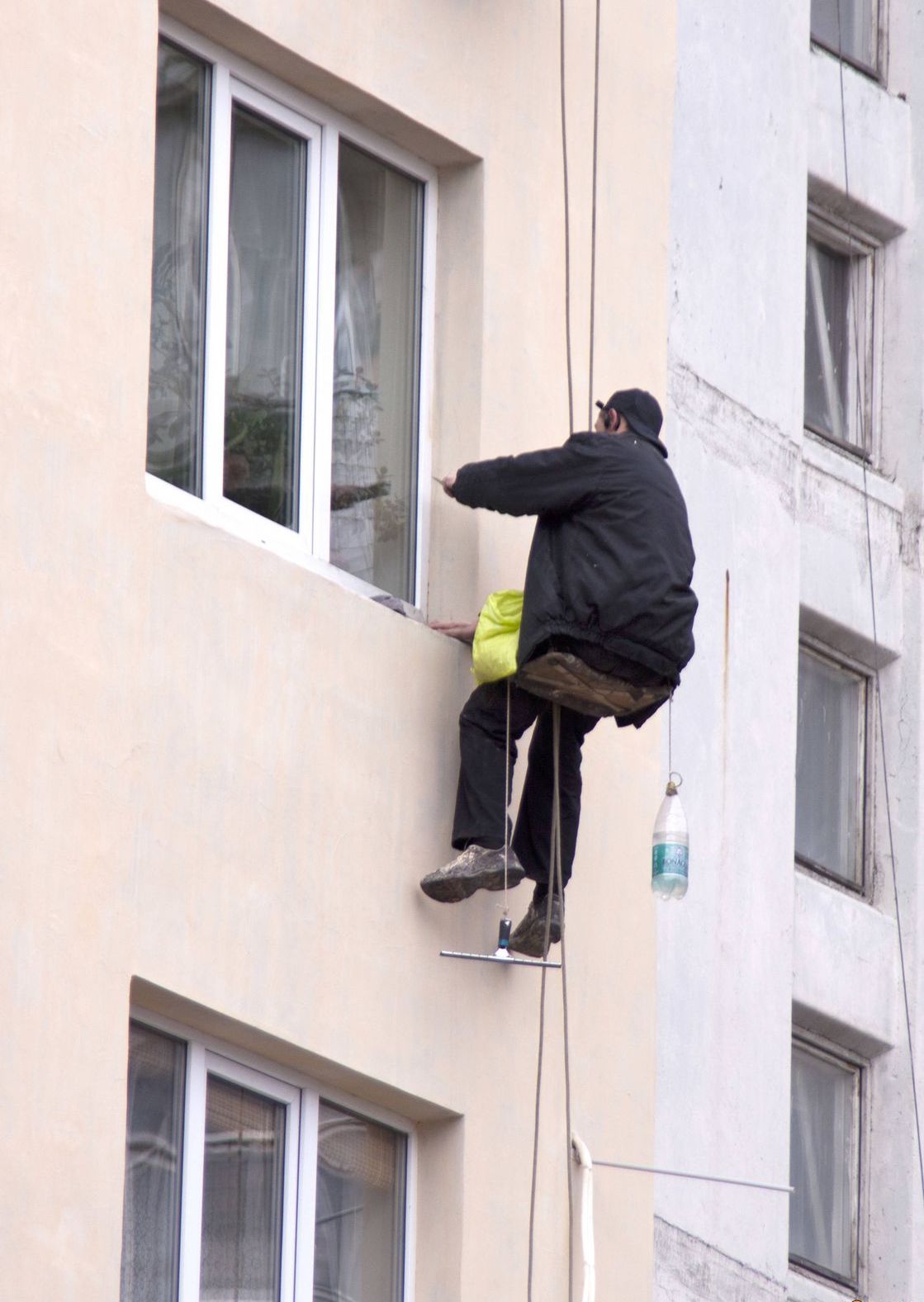
The material for the outside of the wall must be weatherproof. Insulation for interior decoration - environmentally friendly.
How to choose insulation for walls
When choosing a material for thermal insulation, it is worth relying on the climatic conditions of the region and the budget allocated for the renovation of the building. The main selection criteria when buying insulation are:
- Thermal conductivity. This is the property of any matter to transfer heat. The lower the value, the worse the material conducts heat. This means that the walls do not freeze better, they remain warm. The optimal range is 0.038-0.046 W / (m × K), the best coefficient is 0.031 W / (m × K).
- Water vapor permeability. The ability of the material to pass small particles of moisture, steam. Such heaters are said to "breathe". If the material is not vapor-permeable, mold and mildew quickly start in the room.
- Shrinkage. Under their own weight, some heat-insulating materials are strongly deformed, losing their shape and volume. To avoid this, during installation, you need to spend more fixing means - clamping strips, glue, dowels (depending on the insulation). Or look for a more durable insulation.
- Mass and density. The higher the density, the less heat passes through the material. But with an increase in density, the mass of the product increases, which must be taken into account when calculating the load on the wall.
- Hygroscopicity. Heat insulators are of 2 types - non-water absorbing and absorbing. The first ones do not get wet in rain or snow. The latter are hygroscopic and, on average, absorb about 1% in 24 hours.
- Flammability. According to this parameter, they are divided into 3 types - combustible, slightly combustible, non-combustible. Affects the fire safety of the building.
- Thickness. The cross-section of the material in a roll or layer can be from 10 to 200 mm.You need to know the value in order to correctly calculate the place in or outside the building for the cladding.
- Life time. There are heaters with a service life of 20 years, there are 50-60. Typically, the manufacturer indicates the service life under ideal operating conditions. If the material is exposed to constant negative influences for which it was not designed, then it will deteriorate much earlier. Also, the insulation can deteriorate ahead of time due to a violation of the installation technology.
- Environmental friendliness. An indicator of how safe the insulation is in operation. Does it give off any toxic substances at room temperature.
- Chemical resistance. Shows how resistant the insulation is to acids and alkalis. It depends on whether it can be applied with plaster or paint. Some of the heaters lose up to a quarter of their mass after painting or plastering. This must be taken into account when installing a heat-insulating structure.
There are also factors that indirectly affect the choice of goods:
- Wall type. It is easier to glue insulation on a brick wall, and to fasten it to a wooden wall with screws and nails. Therefore, for a brick house, it is better to take a lighter material.
- Ease of installation. Some materials, such as glass wool, can get into the eyes or lungs and severely injure mucous membranes and skin. Working with such heaters requires special care. According to safety rules, installation must be carried out in overalls. But at the same time, the same glass wool does not need to be cut exactly. It is easy to lay, secure.
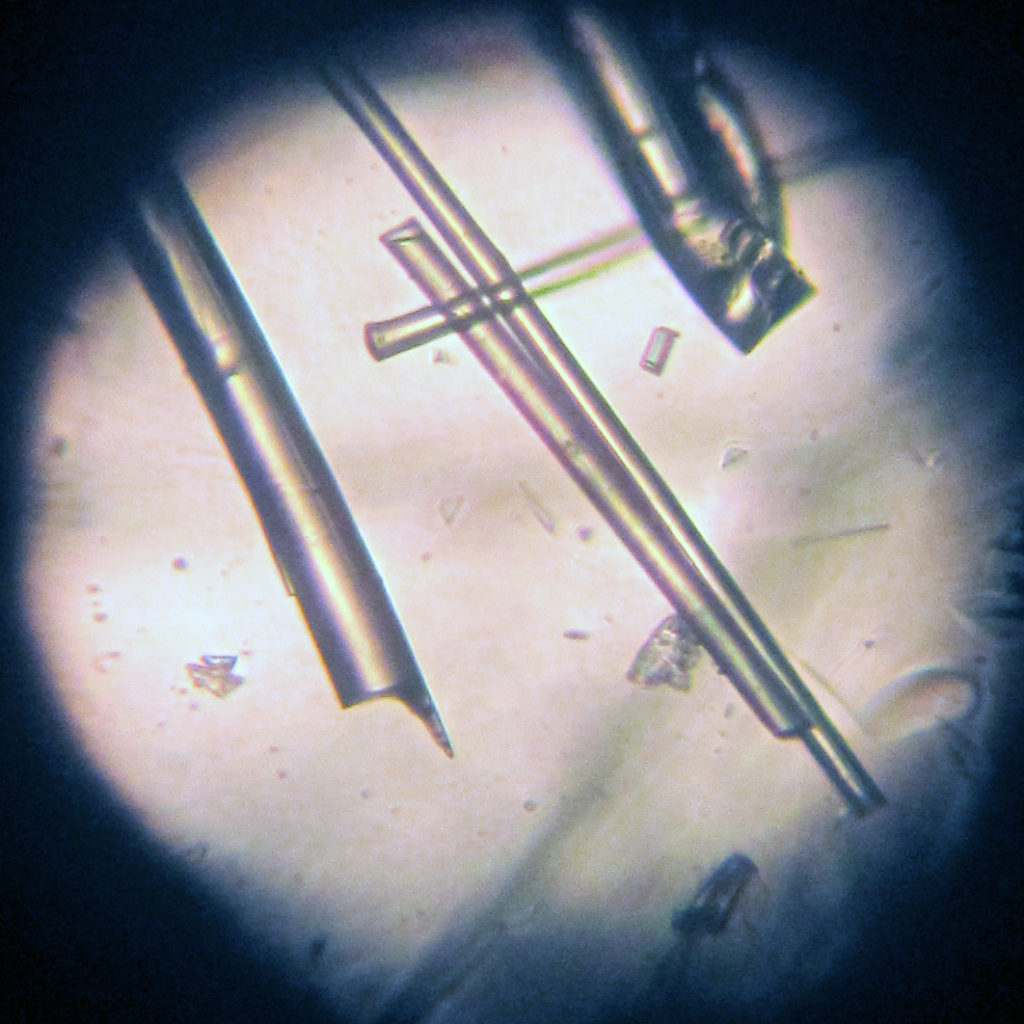
On the contrary, foam in its normal state is not capable of causing harm. But for high-quality installation, you need to accurately cut the sheets. So each material has its own pros and cons.
Comparison of materials
- Mineral wool is a product of the melting of basalt rocks.
- Glass wool is a coarse fibrous material obtained by melting glass, sand, soda, borax, limestone.
- Polyfoam - foamed cellular plastic.
- Polystyrene is the result of styrene polymerization.
- Extruded polystyrene foam - expanded polystyrene.
- Polyester fiber is a product of recycled plastic materials. The synthetic fibers of this insulation are similar to the synthetic winterizer.
| Insulation | pros | Minuses |
|---|---|---|
| Basalt mineral wool | • low thermal conductivity; • non-flammable, fire-resistant; • does not emit smoke when exposed to fire; • lightweight; • easy to install; • vapor permeable; • withstands exposure to alkalis, acids; • vibration-resistant; • dielectric; • environmentally friendly. | • poorly keeps its shape; • you need special protection at work. |
| Glass wool | • budget; • weighs little; • high chemical resistance; • elastic and durable; • environmentally friendly; • vibration-resistant; • non-flammable. | • Tiny particles of material can damage breathing or vision. For installation, you need overalls, a respirator, goggles, gloves. • Hygroscopic; • Does not keep its shape. |
| Styrofoam | • inexpensive; • easy; • does not absorb water; • durable, withstands mechanical stress. | • highly flammable; • emits toxic substances during combustion; • crumbles, crumbles during work; • low density; • precise cutting is required during installation; • easily destroyed under the influence of technical fluids or their vapors - gasoline, acetone. |
| Expanded polystyrene | • not hygroscopic; • low coefficient of thermal conductivity; • keeps its shape for a long time; • withstands compressive loads. | • highly flammable; • hard to mount - you need to cut the material precisely; • easily destroyed by insects, rodents. |
| Polyester fibers | • keep in shape; • not hygroscopic; • low thermal conductivity; • hypoallergenic; • lungs. | flammable. |
The main mistakes when choosing insulation for walls
Let's analyze the main mistakes when choosing thermal insulation materials. This will save you from unnecessary expenses and rework.
- Saving. A poor-quality thermal insulator will not only quickly deteriorate itself, but will also violate the integrity of the wall. Insulation with poor characteristics can cause mold, mildew or even shedding of a part of the facade. Therefore, when choosing a heater, you should not take the cheapest product in the store.
- Fire safety. Insulation should be not only non-flammable or slightly flammable, but also environmentally friendly. When choosing between synthetic and natural insulation, give preference to the latter.
Top manufacturers
According to builders and customer reviews, the most reliable brands are:
- Isover (Isover) is a subsidiary of the French construction concern "Saint-Gobain". Isover is the only Russian manufacturer that simultaneously produces mineral wool of two types - basalt and quartz. Also in the company's catalog there are sound and heat insulation solutions made of glass and mineral fibers, expanded polystyrene (for walls, roofs, pipelines, etc.)
- Knauf is a German manufacturer of construction equipment and materials.
- Rockwool (Rockwool) is an international group of companies headquartered in Denmark. The Rockwool division is engaged in the development, production of stone wool for heat, sound insulation, as well as fire protection for all types of buildings, ships, equipment. Materials are made from gabbro-basalt rocks.
- URSA is one of the most famous Spanish companies producing heat and sound insulation materials. The name of the company has become a household name in construction. URSA products have been represented on the Russian construction market for over 20 years. The products comply with international quality standards, are safe, environmentally friendly, and durable.
- Penoplex is a Russian manufacturer that produces polymer materials for hydro and thermal insulation, decorative and finishing works.
- TechnoNIKOL is a Russian manufacturer of heat, waterproofing and roofing materials.
- ShelterEkoStroy is a Russian manufacturer of ecological insulation. The products are distinguished by high heat and sound insulation qualities. The assortment of the company includes solutions for wind protection and thermal insulation of frame houses, thermal insulation of walls, basements and basements, roofs, as well as technological equipment.
Rating of quality wall insulation for 2020
We offer an overview of the most reliable and popular models of thermal insulation materials with detailed descriptions, which will help you make the right choice. The list includes options for various price points, from budget to expensive.
Stone wool TechnoNIKOL Rocklight
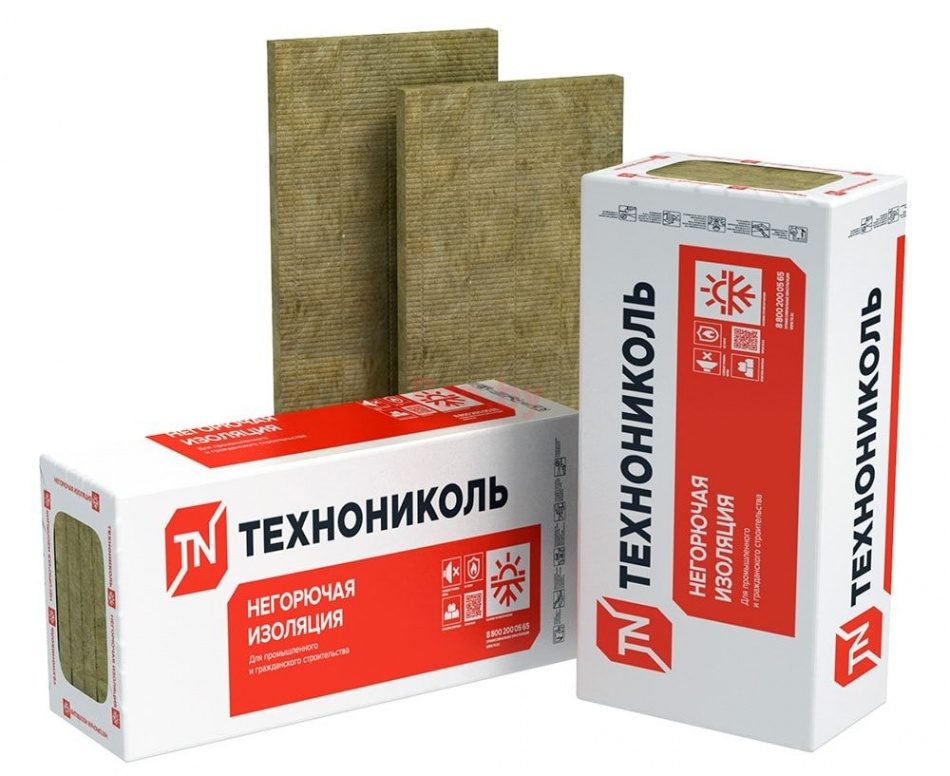
Lightweight non-flammable, water-repellent basalt wool for heat and sound insulation, as well as fire protection of residential and non-residential premises.
Average price: 350 rubles.
Advantages:
- inexpensive;
- fast, easy installation;
- does not crumble, does not crumble;
- low weight - creates an insignificant load on the building structure and foundation;
- high density.
Disadvantages:
- not.
Stone wool Rockwool Sauna Butts 1000 × 600x50mm 8 pieces
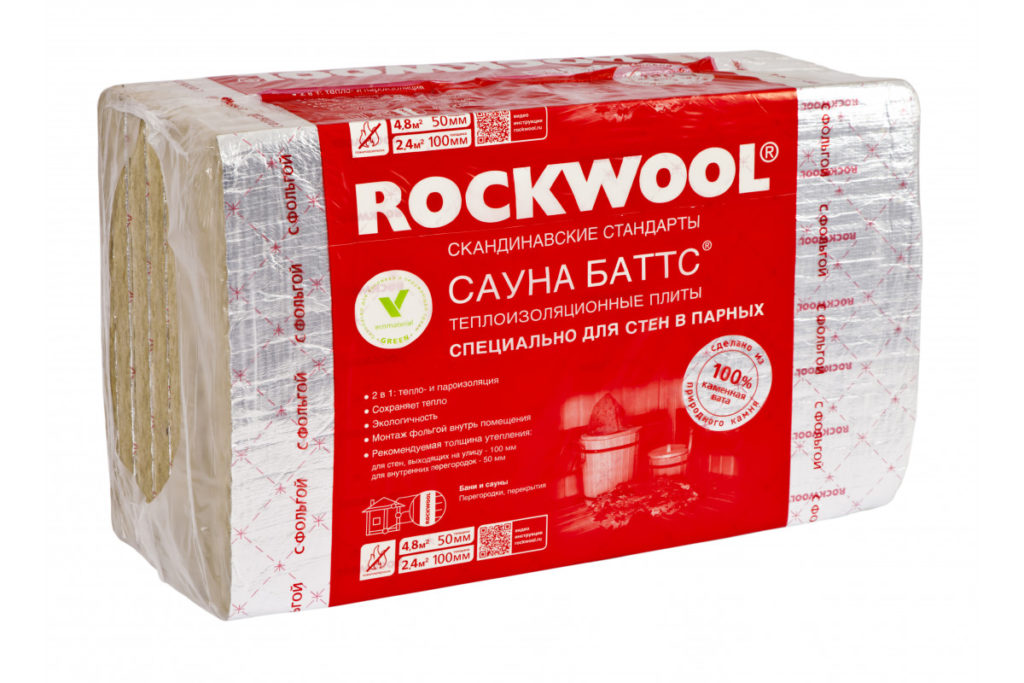
Foil stone wool is specially designed for thermal insulation of baths and saunas. Each plate is covered with aluminum foil on one side. The latter prevents the insulation from getting wet.
The foil acts as a heat reflector and a vapor barrier at the same time. This is especially important for saunas and steam rooms.
Mold and mildew will not start on the material.
Average price: 790 rubles.
Advantages:
- high-quality sound insulation;
- does not crumble;
- easy to install;
- weighs little;
- high-quality fire protection;
- does not absorb water;
- retains its shape, performance;
- not attractive to mice, rats, insects.
Disadvantages:
- not.
Glass wool Isover Warm House
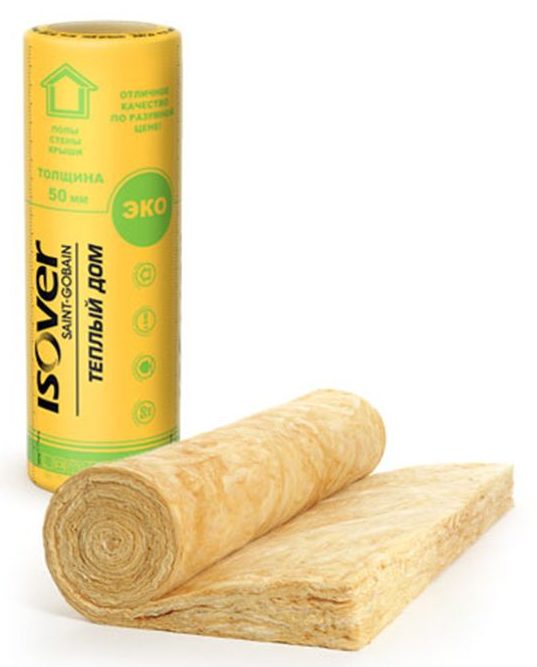
Non-combustible insulation is used to provide heat and sound insulation of buildings, pipelines, car parts, parts of mechanisms in production.
This insulation is approved for use in medical and childcare facilities.
Average price: 625 rubles.
Advantages:
- does not burn;
- does not rot;
- does not corrode;
- environmentally friendly;
- vapor permeable.
Disadvantages:
- hard to mount - you need a special suit;
- does not keep its shape;
- quickly picks up water;
- when wet, the characteristics of the substance deteriorate;
- average thermal conductivity.
Glass wool URSA Terra
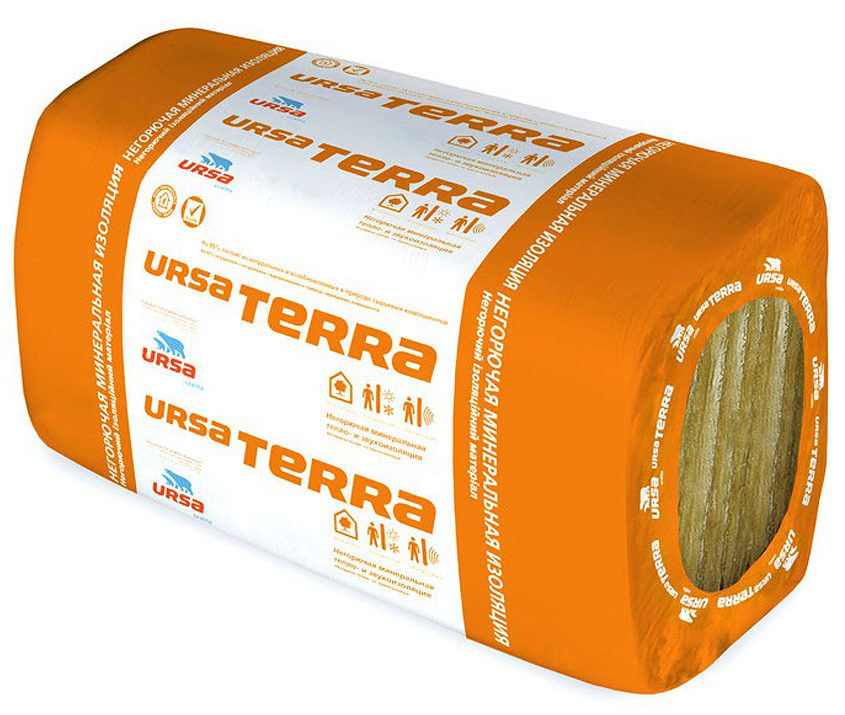
Non-combustible mineral insulation was made for heat and sound insulation of horizontal and vertical structures of private houses.
Average price: 370 rubles.
Advantages:
- non-flammable;
- weighs little - easy to transport, stack;
- does not load the foundation;
- suitable for walls made of any material - wood, concrete, brick;
- good soundproofing.
Disadvantages:
- it is inconvenient to lay, work clothes will be needed for the process;
- low density;
- loses its shape when wet.
TechnoNIKOL XPS Technoplex
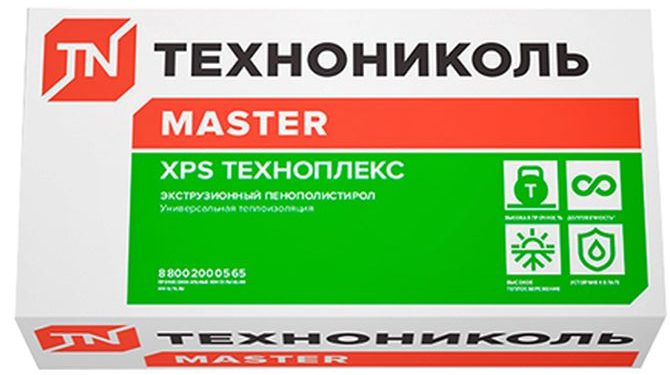
Extruded polystyrene foam is produced in the form of plates. Suitable for external and internal wall insulation. The material is vapor-permeable, it can be used in the bathroom or kitchen. It does not get fungus. Does not deform over time.
Average price: 1120 rubles.
Advantages:
- available in different thicknesses - from 20 to 100 mm;
- convenient to mount;
- water-repellent;
- vibration-resistant;
- low thermal conductivity.
Disadvantages:
- emits toxic smoke when burning.
Penoplex Comfort
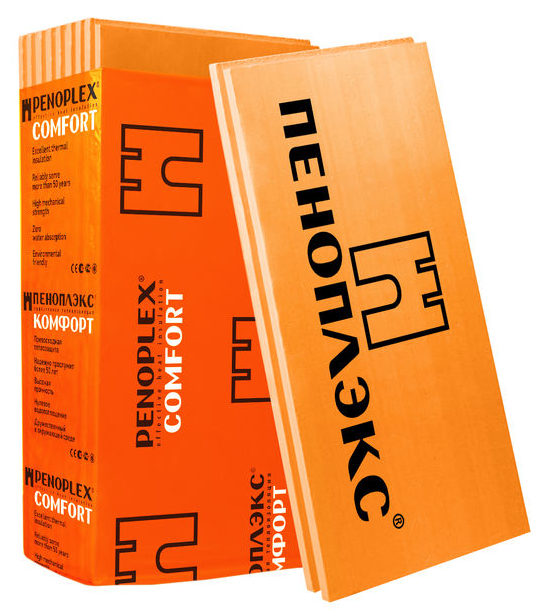
Domestic extruded polystyrene foam boasts a low thermal conductivity of 0.033 W / (m × K), compressive strength and frost resistance (up to -50 ºС).
Suitable for both external and internal insulation of housing. The material is not afraid of dampness, it is unattractive to mold.
Average price: 800 rubles.
Advantages:
- easy;
- does not deform when the temperature drops;
- durable.
Disadvantages:
- easily ignites, cannot be mounted or placed near heat sources with t> 75 ° С;
- easily destroyed by rodents.
Knauf Therm House
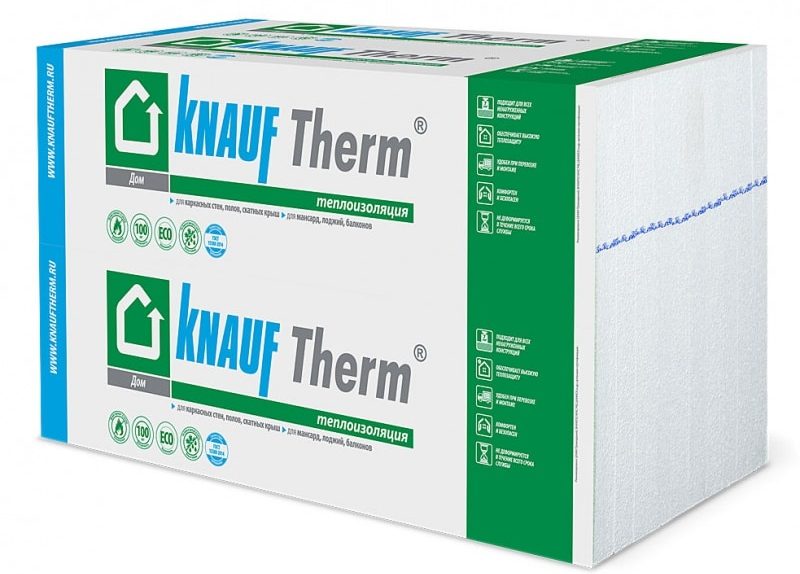
Expanded polystyrene foam for internal and external wall insulation. Long lasting. Suitable for rooms with high humidity.
Average price: 890 rubles.
Advantages:
- budgetary;
- lightweight, does not add additional load to the foundation.
Disadvantages:
- easily ignites, releasing toxic substances;
- low density;
- crumbles during installation;
- requires precise cutting and sealing of the joints with a sealant.
Shelter EcoStroy SHES Arctic
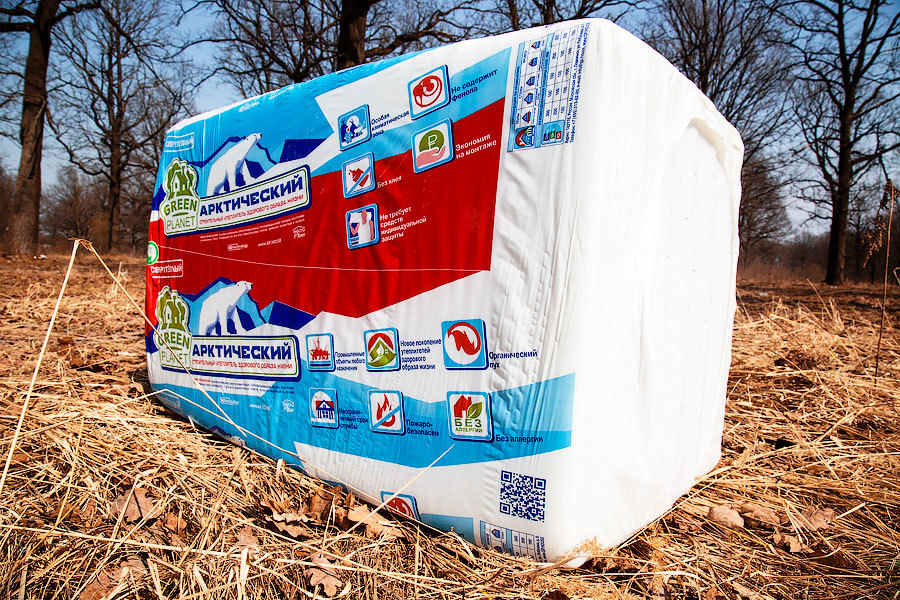
Universal polymer insulation that is suitable for all types of buildings, as well as all types of building structures - heat-insulating, sound-insulating.
The material is ideal for cold, northern climates. It also showed itself well in conditions of high humidity - it did not start to rot, lose its shape. Hypoallergenic. Easy to install, does not crumble.
Average price: 1209 rubles.
Advantages:
- does not absorb moisture;
- durable - from 50 years of service;
- low thermal conductivity;
- low consumption;
- dielectric;
- mold, fungus does not start on it;
- does not attract rats, mice.
Disadvantages:
- expensive;
- refers to low-combustible heat insulators;
- emits toxic, pungent smoke when burning.
Conclusion
How much does a quality insulation cost? Prices for thermal insulation in online stores range from 10 rubles to 10,000 rubles, and depend on the type of product, characteristics, quantity in one package, brand.
We hope that our recommendations will help you choose the best thermal insulation for building or renovating your home.
If you have recently done repairs or work in a construction organization and you have experience using one of the heaters described in this review, share your impressions in the comments. If you know more functional models - write! We are interested in your opinion.












